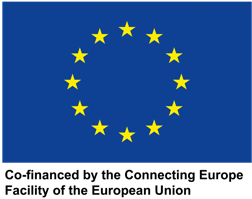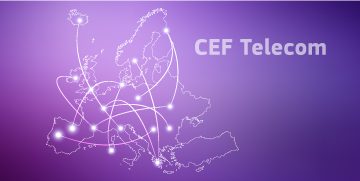
Problem. Lithuania made some progress in the digitalization of services during the past decade. The IT sector’s improvements have a prohibited satisfaction with achieved progress, but omitting the merging of new technologies, Lithuania is now facing the difficult challenges to uptake with new, recently developed technologies as fast as possible. Lithuania’s participation in the Single Digital Market offers an opportunity to join EBSI – just the DLT node set up is needed. On the other hand, the DLT node set up in Lithuania will also affect the Single Digital Market as an additional EU channel for data exchange or tracing. A sufficient number of EBSI node across the EU may lead to greater standardization in use-cases: the current and to be proposed, and this may lead to better accessibility & simplicity in end-use – for citizens, businesses, or public authorities.
Opportunities. DLT node integrated with EBSI will enable interoperability among bodies in EU member state and Lithuania in the provision of trusted, secure, reliable share with information – incoming & outcoming documents’ flows, tracing and monitoring EU wide without intervening into work of the institution of other countries. Establishing a sufficient number of EBSI nodes in all EU member state will create a critical mass for efficient network operation – as much as more member state will be joined to EBSI then more use-cases & e-services will available cross-border. DLTnode will be part of EBSI & will contribute to the Europe digital services. It will be used in cross border and national use cases.
Application of Blockchain/ DLT technology is growing rapidly, including at national & EU level initiatives. Blockchain technology allows to trace regardless used technologies in other countries. DLT node provides new opportunities for new use-cases across sectors:
- By adopting blockchain technology, many social economy organisations could significantly improve how they manage their governance, making it more secure & traceable;
- blockchain could be used for the certification of skills, ensuring the security of qualifications & diplomas in digital format, & issuing digital certificates that automatically update the CV of workers & students;
- blockchain technology is useful in the area of health, personal care & social assistance, both for the secure storage of data & information, and for access for & identification of the people concerned. In this area, a huge number of social economy organisations are involved in work at close proximity to those in need, including in decentralised areas, where the possibility of deploying secure telemedicine & e-care systems could have a considerable impact on people’s quality of life;
- agricultural sector is looking at how the new technologies might be used to make their products traceable & identifiable with complete certainty, preventing fraud & counterfeiting which harm producers & consumers;
- application of this technology in waste reduction, the collection & differentiated treatment of waste may ensure much higher level of traceability & monitoring in waste treatment, & waste management services to citizens may be improved by tracing & control waste amounts for better organization & planning of services;
- new approach by involving more than one million people active in the energy transition, could optimize their distribution network & transitions by using blockchain technology.
The Project is going to set up DLT node, integrated with European Blockchain Service Infrastructure (EBSI) and will be build capacities via training activities targeting a broader uptake of the EBSI by public services. European Commission has provided financial support from the CEF for the implementation of the project “DLTnode” (Project No 2020-LT-IA-0019, Agreement No. INEA/CEF/ICT/A2020/2287551).
The project value is 198,540 Eur, the partners’ own contribution to the project is 49,635 Eur.
Duration of the project – 1 year: starting on 1st of March, 2021, the expected end of project is 1st of March, 2022
Partners. The project “DLTnode” is being implemented by Association Infobalt (Coordinator) together with partners – Public institution eDelivery LT, Systems integration solutions, UAB, UAB Skaitos kompiuterių servisas and UAB Ekonominės konsultacijos ir tyrimai”
The objective is to set up of Distributed Ledger Technology (DLT) node, to test & validate it, integrate with European Blockchain Service Infrastructure (EBSI) and build capacities in public sector. The deployed node will be tested and validated including its integration with EBSI, a review of conformity to security, data protection and eIDAS requirements will be conducted over the node, which will be piloted for at least 6 months. Two training programmes for use cases users and technicians will be built and training activities will be delivered in order to facilitate the EBSI adoption in Lithuania. Communication and dissemination activities will also be implemented to increase awareness of the availability of the DLT node, and to share and exchange best practices
The benefits. As a result of Action, the roll out of the EBSI will be supported in Lithuania, allowing delivery of cross-border public services based on the blockchain technology and enhancing the way citizens, government and businesses interact
The sole responsibility of this publication lies with the author. The European Union is not responsible for any use that may be made of the information contained therein.

